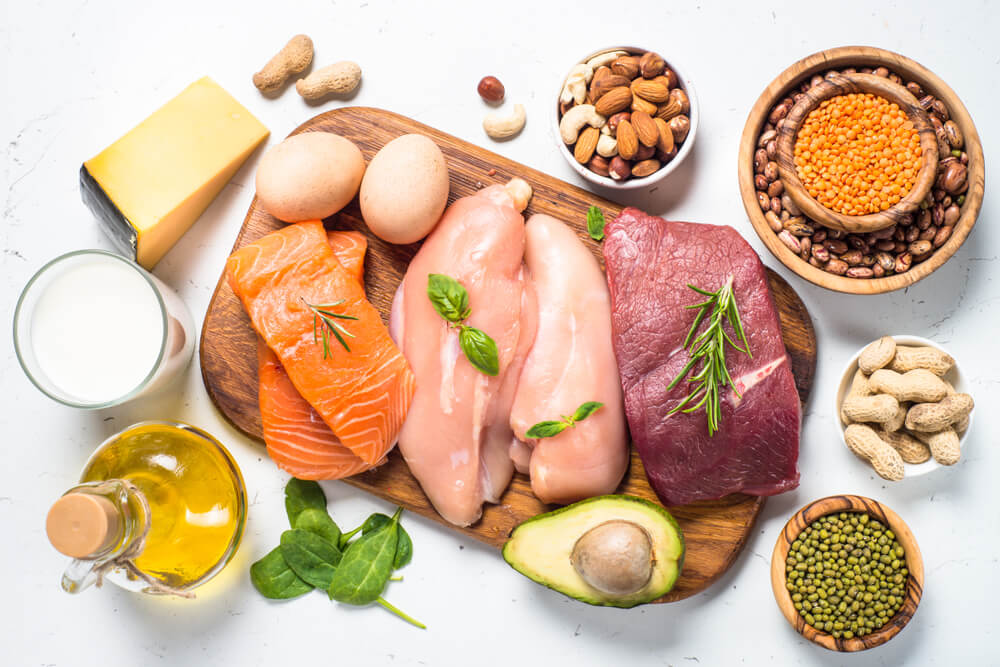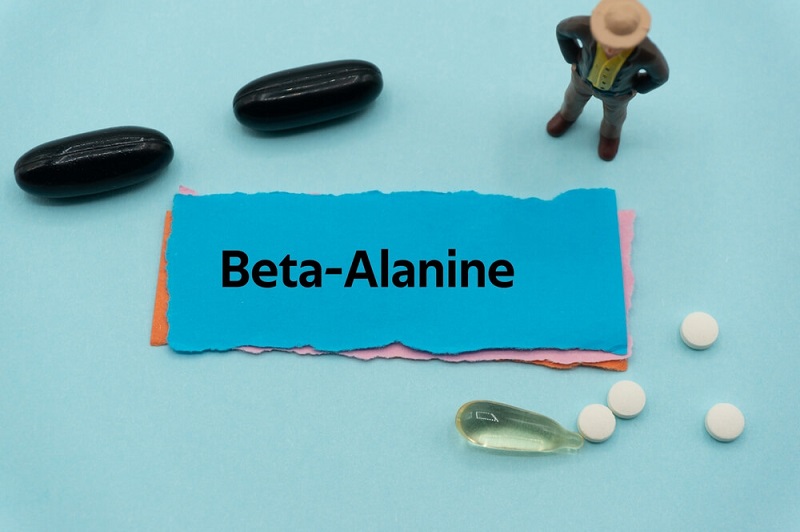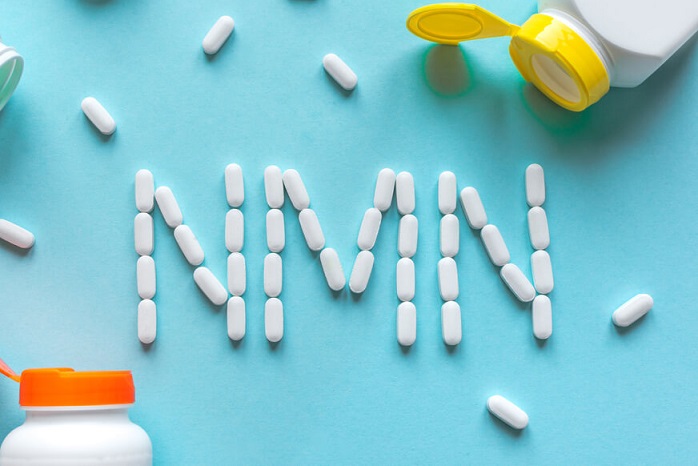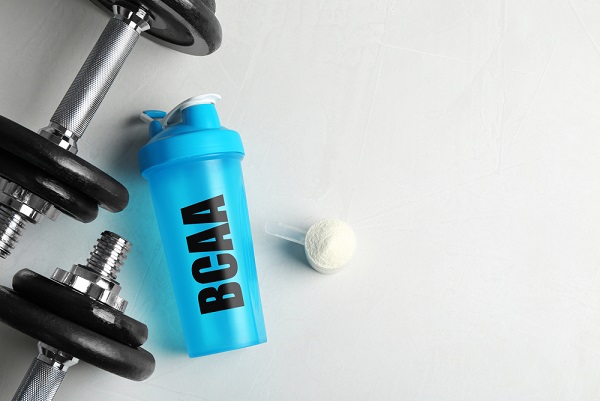what is beta-alanine?
Before we dive into effects of b-alanine, let’s start from beginning. One of the relatively few amino acids that humans naturally produce is b-alanine. Because it is a key component of the dipeptide carnosine (a protein building block that is naturally produced in the body) and can increase the synthesis of intramuscular carnosine, which is an efficient buffer to stop muscle cells from becoming acidic and thus decrease tiredness during exercise, it is commonly used as a supplement for muscle growth.
Carnosine is a dipeptide compound made of the nonproteogenic amino acid b-alanine and the amino acid histidine. A buffer known as carnosine is particularly helpful in halting the drop in muscle pH that occurs during intense exercise. Since it has been demonstrated that -alanine is the rate-limiting precursor for carnosine synthesis, supplementing with b-alanine raises muscle carnosine levels.
beta-alanine side effects
Supplementing with b-alanine increases workout capacity. However, the information currently available indicates that supplementing with -alanine has no positive effects on measures of exercise performance as opposed to exercise capacity. Currently, it appears likely that an increase in carnosine synthesis within the muscle is the primary ergogenic mechanism through which b-alanine functions. (1)
Supplementing with b-alanine improves exercise performance, particularly during short bursts of intense activity lasting 1-4 minutes. Carnosine, however, has been hypothesized to play a number of different activities in the body, such as antioxidant, antiglycating, and ion chelator, all of which may have a substantial impact on ageing and other health advantages. Carnosine content is influenced by a number of additional variables, in addition to b-alanine supplementation, including food, gender, and level of exercise. (2)
Another reason that b-alanine is one of the more well-known sports supplements used by strength and power athletes today is due to its capability to increase intracellular muscle-buffering capacity and, by doing so, prolong exhaustion during high-intensity exercise. (3)
Beta-alanine tingling is referred to those pre-workouts that contain b-alanine. Larger doses of b-alanine and niacin in pre-workout supplements which is main reason for tingly feeling. High doses of niacin may also cause the skin to flush, turning it red, blotchy, and even itching.
beta-alanine dosage
The daily dosage varied from 2.5 grams to 6.5 grams, and maximum dosage administered varied from 800 to 2,000 mg. The effect size of the dosage is 4 grams daily. According to research, beta-alanine supplementation relies on saturation levels rather than time. So long as you are consuming the required 3.2g/day, you will benefit from this very advantageous amino acid.
Can too much beta-alanine be harmful?
Beta-alanine may cause paraesthesia, a strange sensation that is frequently described as tingling of the skin, if consumed in large doses. Usually, the cheeks, neck, and backs of the hands are affected.

beta-alanine in food
If you eat meat, you can also simply get beta-alanine through your diet. However, if you’re vegetarian or vegan, you may find it more difficult to meet your needs and may think about adding this to your supplement collection. Beta-active alanine’s metabolite is largely stored in the muscles of carnivores. Therefore, beef is the most typical source of beta-alanine.
Fish, poultry, beef, and pork are all great providers of this advantageous amino acid. Here is a breakdown to demonstrate rough estimations of the amount of beta-alanine in various foods:
- Pork: 2400 mg/g
- Beef: 1700-1900 mg/g
- Chicken: 660 mg/g
- Fish: 2.5 mg/100g

When should I take B alanine?
As you can see, while those who eat meat can get this amino acid from food, they must consume Beef: 1700–1900 mg/g of meat is needed to satisfy their needs. Using a high-quality supplement between meals will make sure you get enough beta alanine in your system to benefit from it while also being easy on your stomach and wallet.
is beta-alanine safe?
In healthy populations, beta-alanine supplementation currently seems to be safe when taken at recommended levels. The sole negative effect that has been identified is paraesthesia, or tingling, but studies show that this can be reduced by splitting lower dosages (1.6 g) or using a sustained-release medication.
is beta-alanine a stimulant?
Beta-alanine is a wonderful choice for pre-workout hydration since it can produce an immediate stimulant response. You may already be doing this if you take a pre-workout pill. However, beta-performance alanine’s advantages depend on gradually increasing muscle carnosine levels.
Does beta-alanine have instant effects?
As soon as you start taking beta-alanine supplements, your levels of carnosine will start to rise. Within four weeks, significant gains in strength and power can be observed. Along with your general carnosine levels rising, your resistance to weariness rises as well.

beta-alanine vs creatine
Creatine boosts energy, which is directly used as muscular energy and fuel and provides bursts of strength and power. More carnosine, which reduces the production of lactic acid and leads to increased power, speed, and rep volume, is a result of beta-alanine supplementation.
Just keep in mind that although beta alanine prevents lactic acid from entering your muscles and wearing you out during longer, more endurance-focused workouts, creatine aids in short, strong bursts of power.






